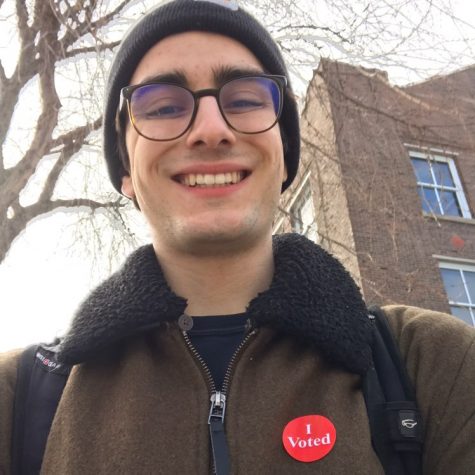The Case for PEDs, and a more fair sporting world

February 10, 2022
As I watch the Olympics, I can’t help but feel like it isn’t a truly fair competition between the athletes and that it is an incomplete measure of what humans can really do. I would like to see a competition that finds how far a human can ski jump given optimal conditions, or how fast a human being can actually skate. The Olympics should be a great place to do that but we are not getting athletes at their truly peak performance. This is why I propose we say yes to PEDs.
Some might argue that performance-enhancing drugs (PEDs) are cheating or unfair. I beg to differ. I believe it would truly even the playing field because some countries (like Russia, which is currently banned from the Olympics until December 17, 2022 for their state-sponsored doping program) already are doping, while clean athletes are punished for being clean. There is a prisoners’ dilemma for athletes, with the dominant strategy being to cheat. This penalizes those who have the moral character or fortitude to not cheat, while rewarding others who did cheat.
The solution is not more draconian testing policies, but rather an abolition of these policies and a level playing field where athletes are able to make informed decisions about their bodies. This would ensure all athletes that wanted to use PEDs could, rather than those that can circumvent testing either with new drugs or through sheer luck (as not all athletes are tested). I would also be open to an Olympics for athletes who chose not to dope, which would give those athletes a chance at fair competition.
I want to see exactly how far a human is able to push themselves in the Olympics; I want to see world records. PEDs will make sports more exciting. Take for example Major League Baseball, which captured public attention during the infamous steroid era of the 90s and early 2000s. Sammy Sosa and Mark McGuire’s home run chase of 1998 was exceedingly popular despite the fact that both players were juicing at the time. We want to see unexpected and exceptional feats in sport; PEDs can help accomplish this.
In other professions, PEDs are widespread including classical musicians who use beta-blockers to deal with some of the effects of stress and stage fright. The use of beta-blockers were stated to actually improve the quality of the music performance according to music critics. If we accept these substances in certain fields to improve the quality of the performance, why shouldn’t we accept them in sports?
Beyond the on-field benefits, there would be other improvements in game and for match quality. This is because certain PEDs, like steroids, when used properly, can be immensely beneficial for injury recovery, particularly for muscle injuries. When used under medical supervision, they can shorten recovery time. If athletes missed fewer games due to injury and were able to recover faster, fans would get a better experience and be able to see the stars play, particularly in the biggest moments.
Of course, these performance-enhancing drugs will need to be regulated and overseen by medical professionals, but every team has team doctors, and there can be new regulatory bodies at the either international or at the league level (depending on the sport). There would be more baseline blood testing and assurance that the athlete is healthy. Further, a world with legalized doping would be incentivized to create safer PEDs rather than undetectable PEDs (with adverse effects). But this infrastructure for testing would not really look much different than current anti-doping agencies, though these bodies would be more oriented towards the players and their health.
Currently certain drugs like amphetamines (e.g. adderall, beta-blockers and EPO) are all considered as PEDs, despite the fact that they are medically necessary for certain people, who then have to go through lengthy processes to prove that they are not gaining an advantage from the substance.
EPO is a naturally-occurring human hormone that regulates red blood cell production and “rais[es] the packed cell volume (PCV)—the percentage of the blood comprised of red blood cells. EPO is produced in response to anemia, hemorrhage, pregnancy, or living at altitude”. It is important in endurance athletes and certain athletes have a higher naturally-occurring level of EPO, which makes them better endurance athletes, purely due to chance. For example, in 1964, Finnish skier Eero Maentyranta won three gold medals but was later found to have “40–50% more red blood cells than average” due to genetic mutation. In “Why we should allow performance enhancing drugs in sport”, philosopher Julian Savulescu asks, “Was it fair that he [Maentyranta] had significant advantage given to him by chance?”
I argue that enabling athletes to dope would be one way to balance this natural advantage. Since altitude training, hypoxic masks and EPO all increase the PCV, but only EPO is banned. Why should certain athletes be granted an advantage due to genetic chance or due to the privilege of being able to train (or to simulate training) at altitude?
The status quo in sports is already rife with inequity, particularly between wealthy nations/teams and poorer nations/teams, removing doping restrictions would make competition fairer. While it is true that PEDs are expensive and would require medical professionals to administer, they are less costly than expensive training methods (including hypoxic masks or training at altitude) to keep up with other countries’ illicit doping programs (like Russia’s).
In short, relaxing doping rules would lead to a better ‘game’ with more stars available, and would level the playing field between different nations and athletes.












